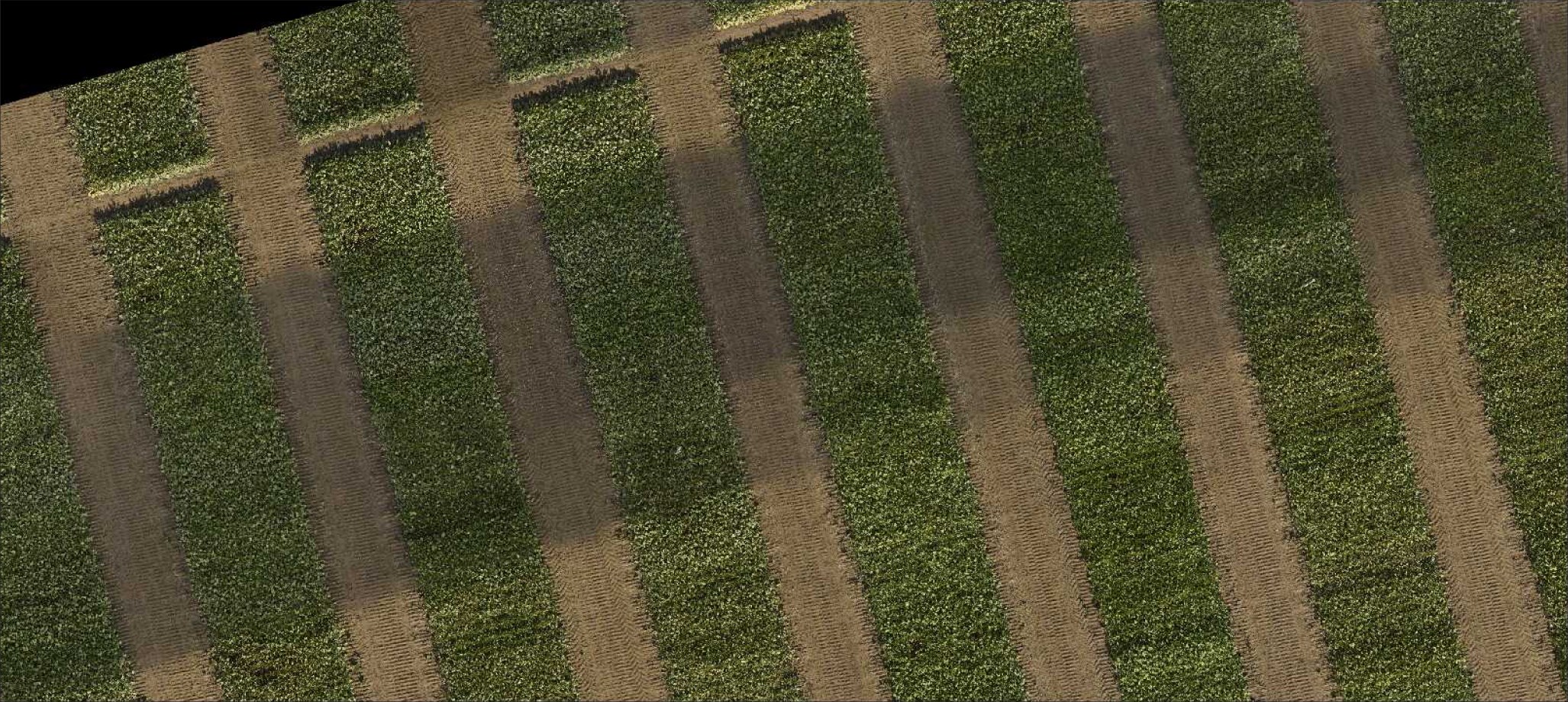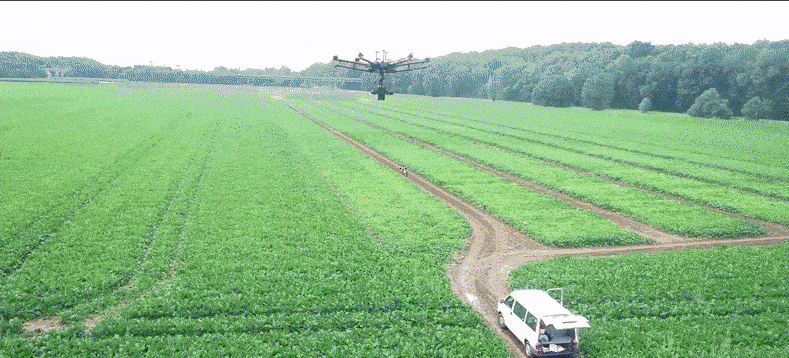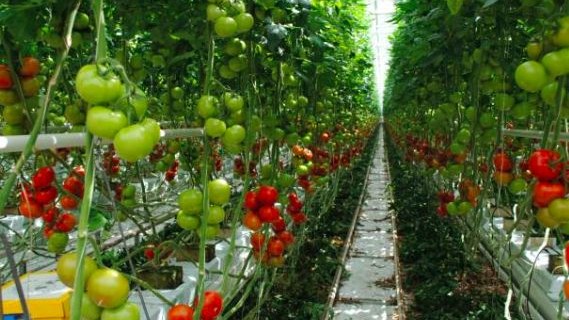
Research & Development

Pheno-Inspect
2019/06 – 2021/02, EFRE-gefördertes Start-Up, TRANSFER.NRW

Crop monitoring is essential to provide farmers with insight into the health and development of their plants. Yield predictions for fresh produce are especially important to optimize daily operations and supply chain management. Currently, monitoring is mainly done manually, which is labor-intensive, costly, and inaccurate. TOMEYE will significantly improve yield prediction without the need for manual labor, thereby reducing both farmers’ income losses and labor costs. The consortium will introduce TOMEYE, a revolution in autonomous indoor crop monitoring. TOMEYE combines novel agile drone navigation for indoor spaces with artificial intelligence for yield prediction in tomatoes, the largest market for greenhouse crops in the EU. An expansion to other crops and services related to plant development and diseases will follow.
Accelerating and improving breeding towards more efficient plants and varieties is key to increasing yields and enhancing plant resilience. For plant breeders, it is important to observe and document phenotypic traits that describe the appearance of plants in the field, in order to assess the quality and success of the breeding process. With Pheno-Inspect, we aim to provide breeders and farmers with novel software solutions for automated high-throughput phenotyping in the field. For sensing, we rely on small and lightweight flight platforms that enable flexible, large-scale, and time-efficient data collection of fields and plot trials. With our software toolchain, we provide breeders and farmers with a tool to gain accurate knowledge about the crop and individual plants. We automatically detect phenotypic traits of crop plants, plant species, and weeds in the field and derive site- or plot-specific statistics from them. Our approach is based on state-of-the-art machine learning methods optimized for the agricultural sector, to semantically interpret the captured image data and extract the desired parameters about the plants. The learning methods we developed utilize the user’s expert knowledge to efficiently adapt and quickly and effectively deliver the desired results with regard to individual problem statements and local environmental peculiarities.

This project is funded by the European Union and the state of North Rhine-Westphalia.

RegisTer
2021/03 – 2024/02, BMEL & BLE,

The RegisTer project aims to utilize artificial intelligence and optical sensors in the variety description process of the Federal Plant Variety Office for sugar beets. This involves evaluating the distinctiveness, uniformity, stability, and agricultural value of the varieties in the context of variety approval.
The sugar beet is a crucial and efficient crop for diverse crop rotations, playing a significant economic role in rural areas. Modern varieties need to exhibit key traits like disease and stress tolerance and high yield potential. These traits must be quickly and reliably identified in the breeding and approval process. Each variety needs a clear description. As breeders develop and test more varieties, the Federal Plant Variety Office must determine if a variety is distinct, uniform, stable, and has agricultural value. This requires manually capturing phenotypic traits in field tests, a labor-intensive process.
The goal of the interdisciplinary RegisTer project is to develop automated routines for characterizing and evaluating sugar beet varieties. This involves using ultralight drones and modern sensors to capture geometric and optical/reflective properties of the plants. High-resolution RGB and 3D sensors will accurately measure these properties, forming the basis for automatic data analysis using advanced image processing and machine learning down to the individual plant level. The aim is to automate the extraction of new traits for variety description and evaluation, enhancing the feature collection process in both practical breeding and official variety testing.

RegisTer is funded by the German Federal Ministry of Food and Agriculture (BMEL) based on a decision by the German Bundestag. The Federal Agency for Agriculture and Food (BLE) provides coordinating support as a funder for digitization in agriculture, with the funding code FZK 28DK108A20.


Herbicide-free weed control
2021/09 – 2023/12, DBU
Where weeds grow, they are sprayed. Chemical weed control is still the common practice on around 90% of all agriculturally used land in Germany. Numerous studies demonstrate the link between pesticide use and the significant decline in biodiversity. Organic farming, in comparison, leads to a significant increase in biodiversity and thus makes an important contribution to a functioning ecosystem. Non-chemical weed control is often more labor-intensive and expensive, as manual weeding is still indispensable, especially in the cultivation of seeded, slow-growing crops like carrots and other root vegetables. The start-up deep green precision weeding aims to develop an ecological method to practical maturity based on self-learning plant recognition, which can be economically competitive with herbicide application in the long term. Pheno-Inspect GmbH is responsible for the development of the necessary image-based classification of plants and weeds in the project. The project goal is a demonstration machine for automated weed control in organic carrot cultivation: the KelvinR370. The machine is intended to capture plants camera-based, distinguish crop plants from weeds with high accuracy, and regulate the latter with precision. The project includes the development, construction, and field testing of a prototype, followed by the implementation and practical evaluation of the demonstration machine KelvinR370 by deep green. For use in sensitive crop stands, deep green is developing precise, spot-on weed control, integrating it into the machine, and testing its effect under practical conditions. Simultaneously, Pheno-Inspect is developing an image processing pipeline tailored to the system for robust classification of carrots and weeds and simultaneous detection of their root points – with the highest reliability under various field conditions.


Gefördert durch die Deutsche Bundesstiftung Umwelt


TOMEYE
The first automatic solution for plant monitoring with drones of tomatoes in the greenhouse
2022/08- 2024/10, EUROSTARS, DLR
Monitoring cultures is essential to provide farmers with insights into the health and development of plants. Yield predictions for fresh produce are particularly important for optimizing daily operations and supply chain management. Currently, monitoring is mainly carried out manually, which is labor-intensive, costly, and inaccurate. TOMEYE will significantly improve yield prediction without the need for manual labor, thereby greatly reducing both farmers’ income losses and labor costs. The consortium will introduce TOMEYE, a revolution in autonomous indoor culture monitoring. TOMEYE combines novel agile drone navigation for indoor spaces with artificial intelligence for yield prediction in tomatoes, the largest market for greenhouse cultures in the EU. An expansion to other cultures and services related to plant development and diseases will follow.


